
From Harlem to China: how an African-American tracked down her Chinese grandfather
When Paula Williams Madison traced her family history, it took her from her home in New York to Jamaica, and on to southern China. Her documentary tells an amazing story of the Hakka diaspora in the early 20th century
When she was six years old, African-American Paula Williams Madison resolved to find her mother Nell’s family because she thought it would make her mum happy.
“I would meditate and look at the sun, asking it to take me to talk to my grandfather,” Madison recalls. “I’d say, ‘How come I can’t find you?’ and I felt him say, ‘Just look for me’.”
Sadly for Madison, her mother died in 2006, five years before she embarked on a journey that would take her from the New York district of Harlem to the southern Chinese province of Guangdong.
When they were children, Nell Vera Lowe had revealed to Madison and her older brothers, Elrick Jnr and Howard, that their maternal grandfather was a Chinese man who had spent time in Jamaica. His name was Samuel Lowe. Stringing together information Madison gleaned from her mother and further research, an intriguing and complex family tale emerged.
In 1905, Lowe travelled to the Caribbean island from China to labour on sugar plantations. Chinese workers usually went there on three-year contracts, but Lowe stayed on. He became a successful businessman, setting up several grocery shops and buying land on the island.
He also hooked up with a Jamaican woman, and Madison’s mother was born in 1918. But when Nell was three years old, her parents split up. Lowe had found another woman, Emma Allison, who bore him two more children: a girl, Adassa, and a boy, Gilbert.
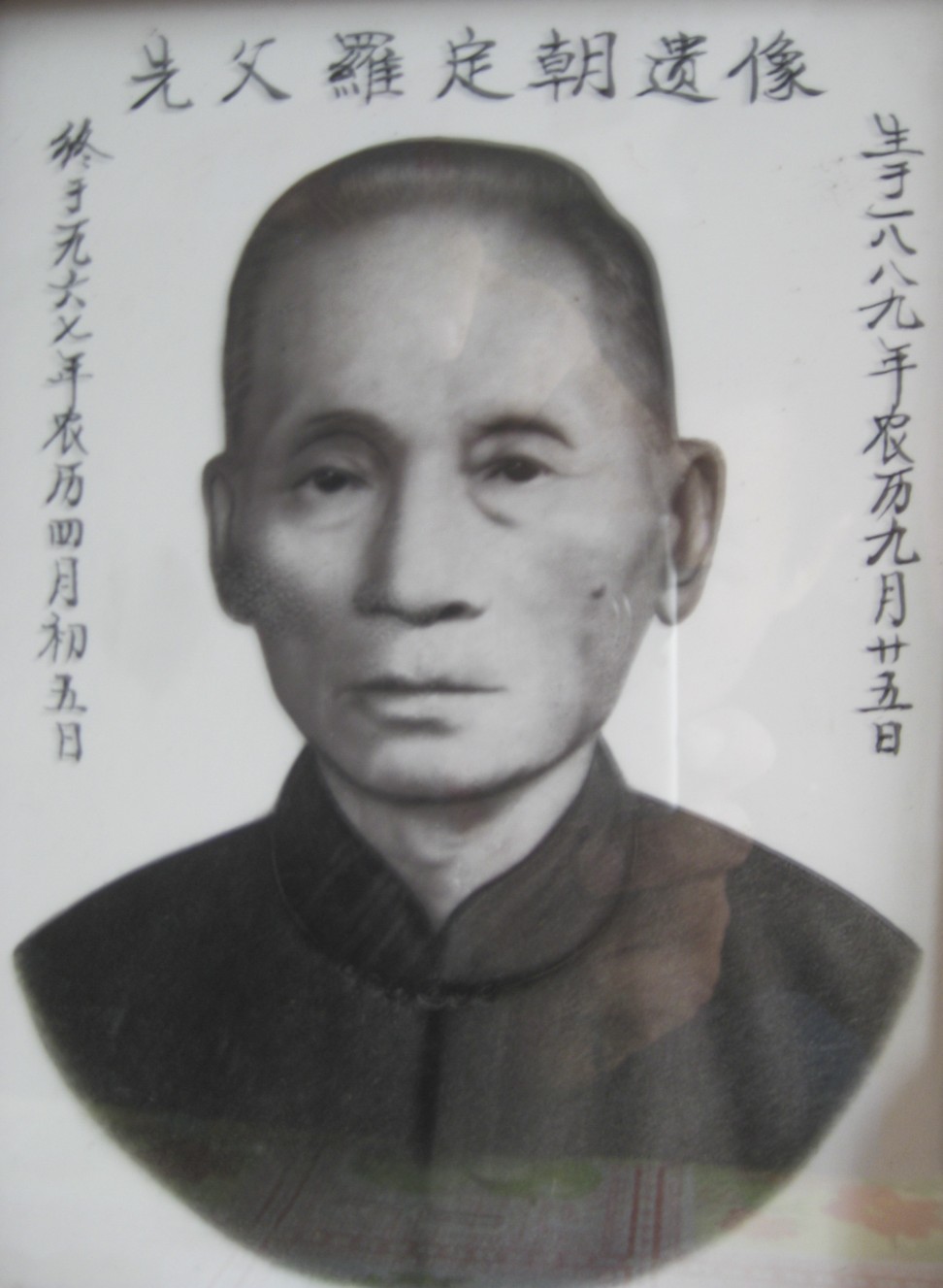
How a Chinese-Jamaican’s family history quest led her to Hong Kong
To start a new life, Nell later emigrated to New York. There, she met and married another Jamaican immigrant, Elrick Williams Snr, who later earned high regard as the first black shop steward of his local union at United Auto Workers.

At one point the three siblings owned Women’s National Basketball Association franchise the LA Sparks, and remain majority owners of The Africa Channel television network, and have a home in Martha’s Vineyard.
Despite the money, success and fame, Madison still felt there was a void she needed to fill.
“I promised myself that I would retire at 58, and look for my grandfather,” she says in a WeChat conversation from Los Angeles.
So in 2011, the year before she retired, Madison and her two siblings attended a Hakka conference in the Canadian city of Toronto, knowing that Lowe had belonged to the Chinese ethnic group. One of the organisers was a Chinese man who also had Jamaican roots and the surname Lowe. He turned out to be a distant relative, and the meeting provided them with a major breakthrough in tracking down their family members on the other side of the world.
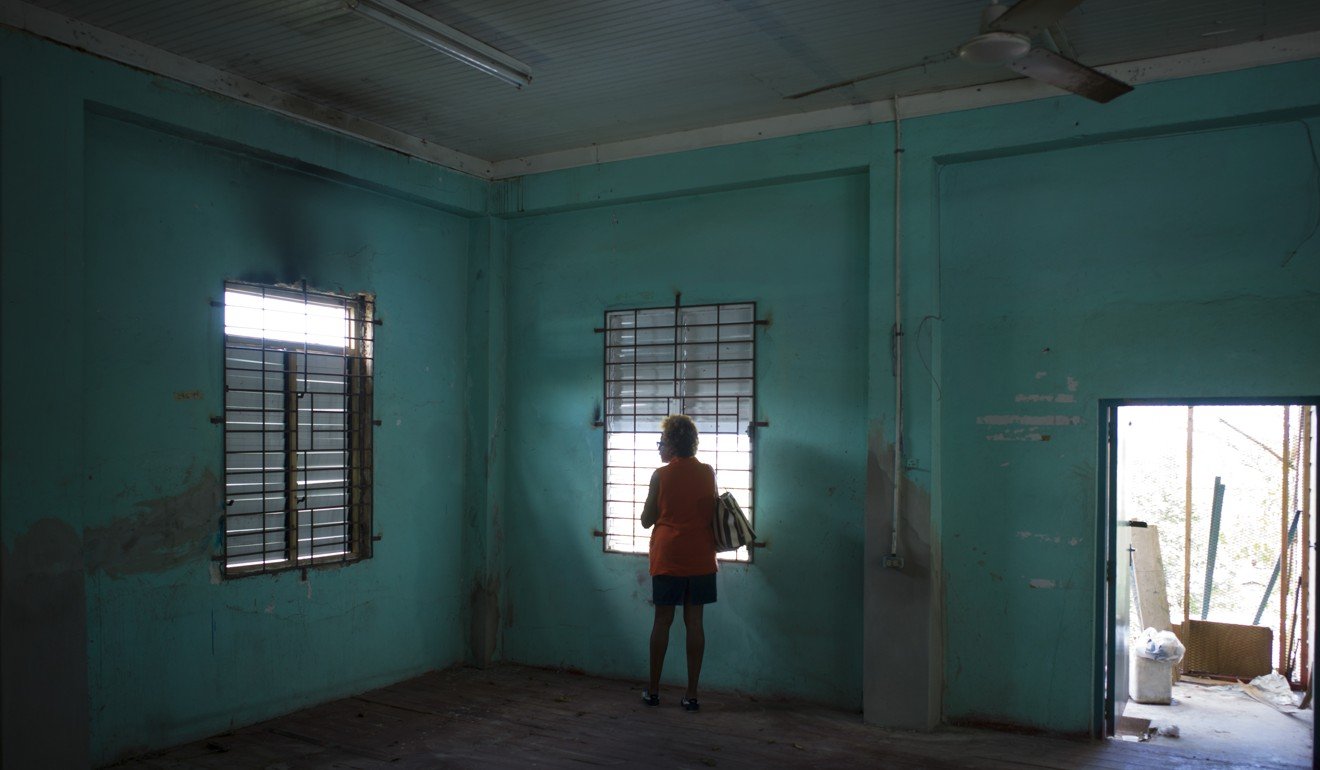
One of the first stops in the search was Kingston, where they located one of their grandfather’s shops. In a scene from the documentary, they enter the empty space and Madison begins to weep.
“I was physically in his [my grandfather’s] space and I was overcome. I wanted to pray and talk to him but I was sobbing,” she recalls. “I imagined my mother trying to find him, coming here, and her uncles tell her he’s left and give her a pair of pearl earrings he left for her.”
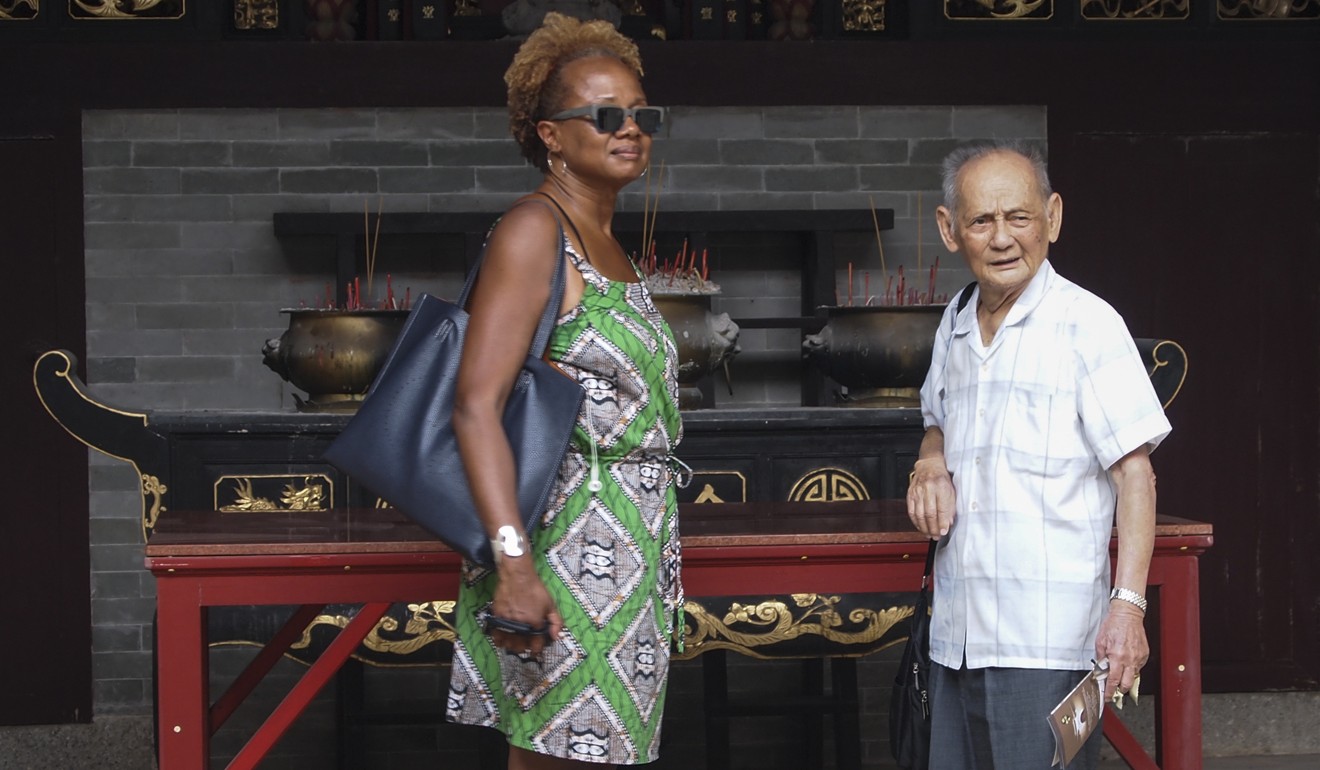
I am black and Chinese. If I can find my family, you can too
Madison remembers being both nervous and excited beforehand, but upon meeting them, a sense of peace came over her.
“It was an out-of-body experience – I felt like I was floating above watching like a film. We exchanged photos of my grandfather and my mother, and they agreed she looked like him.”
Madison says her mother always seemed sad because her own mother didn’t want her, while her father wanted her but couldn’t find her. “That’s why family was so important to her. It was something she wished for but didn’t get,” Madison says.

Each time Madison returned home to California, she would receive WeChat voice mail or text messages from uncle Chow Woo asking when she would be back again. And each time she visits, she feels right at home, despite the language barrier.
They have visited Lowe’s grave in Guangzhou, and the family ancestral hall in Shenzhen, making her feel even more connected to the grandfather she never knew. Her uncle gave the three siblings Chinese names, and included them in the family tree.
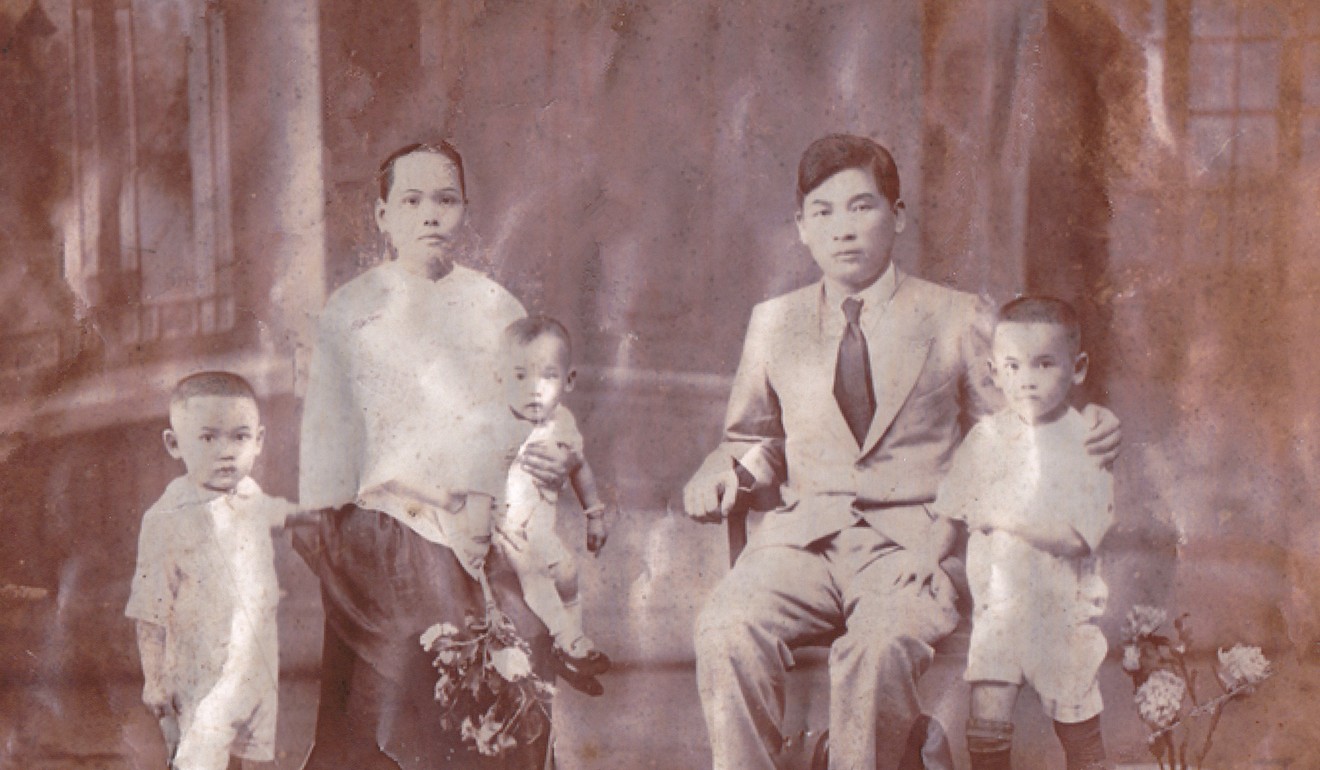
Ironically, the hard-nosed journalist hadn’t been keen to make the documentary of them finding their grandfather – it was too personal – but her brother Elrick insisted. “That’s why, when they interview me, I’m sometimes wearing make-up, sometimes not, but sounding nasal all the time because I’d been crying so much.”
Madison has no qualms telling people about her Chinese ancestry, although it surprises many that there were mixed marriages in the early 20th century.
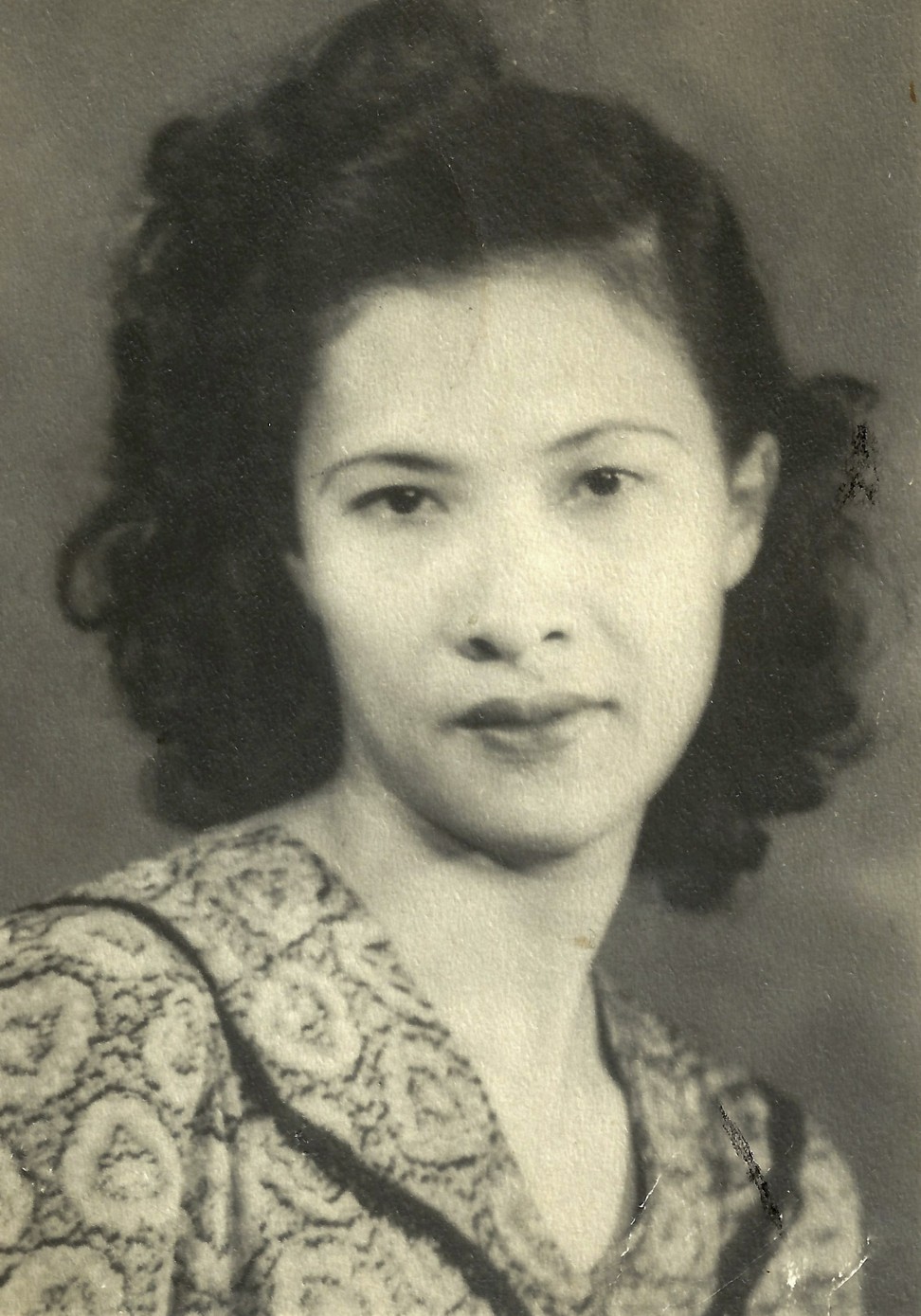
Looking back, Madison believes she had been preparing to find her grandfather’s family all her life, having majored in history with a focus on Caribbean and Chinese history at Vassar College in New York, followed by journalism school.
“By 2012 I had accumulated and followed a paper trail. I was a historian, I interviewed people. And then when I found my relatives, I realised that I had been preparing myself for this.”
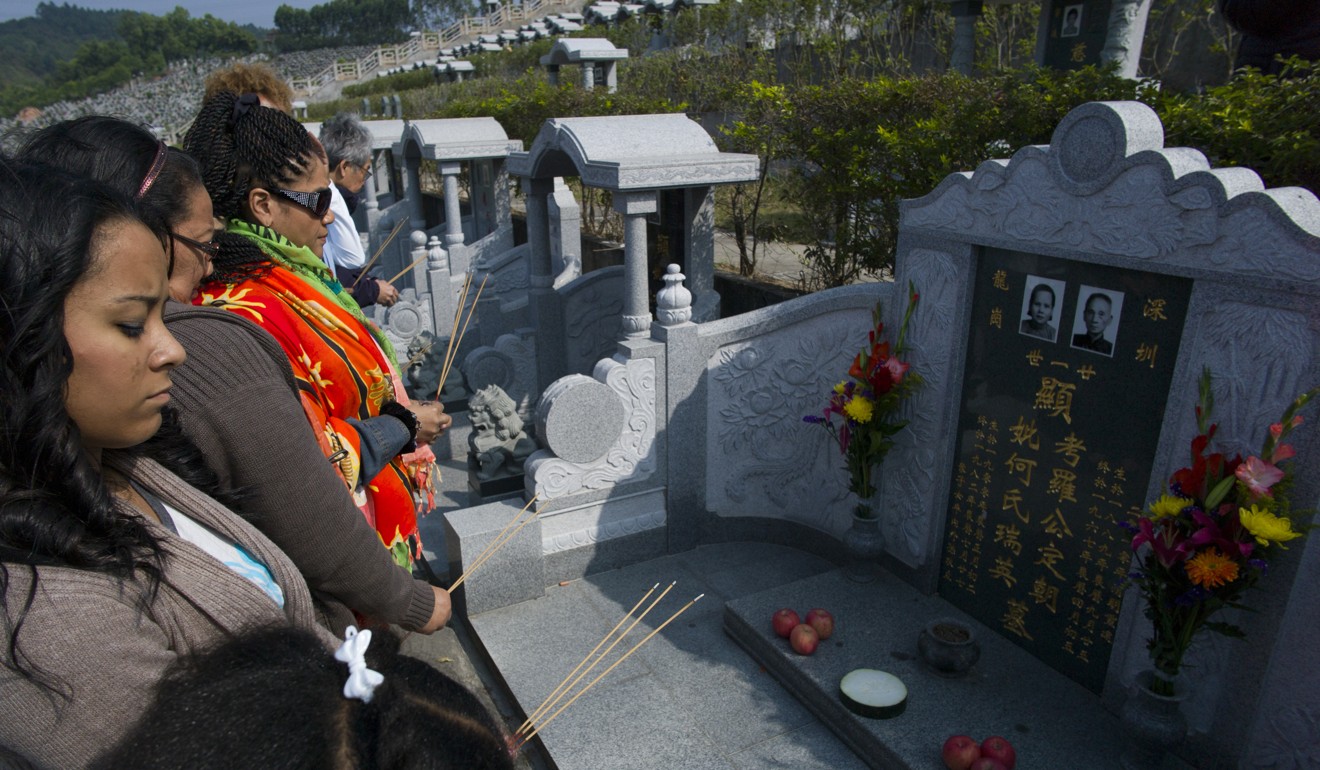
She encourages them to keep looking because new information can come up every day.
“I am black and Chinese. If I can find my family, you can too,” she says.
She recommends searching FamilySearch.org, which is historically known as the Genealogical Society of Utah, and has collected family records for more than 100 years.
“These are documents kept by the Mormons and a year ago they released documents on freed slaves. Some 300,000 people are constantly uploading information,” she explains. “Just because you didn’t find information last week you should try again. Mormons also collected Chinese legacy books in China. They have collected them for decades.”
Madison’s next project is to find out more about her father’s father. “I’m going to Jamaica to visit Mocho Clarendon, where my paternal grandmother grew up. It’s about half a kilometre from where my grandfather’s shop was. Maybe my grandmother shopped in Samuel Lowe’s shop and then 20 years later their children meet in Kingston. This to me is fascinating.”
Finding Samuel Lowe: From Harlem to China, May 26, 6.30pm-9pm, Asia Society Hong Kong Centre, 9 Justice Drive, Admiralty, tel: 2103 9511; asiasociety.org/hong-kong

